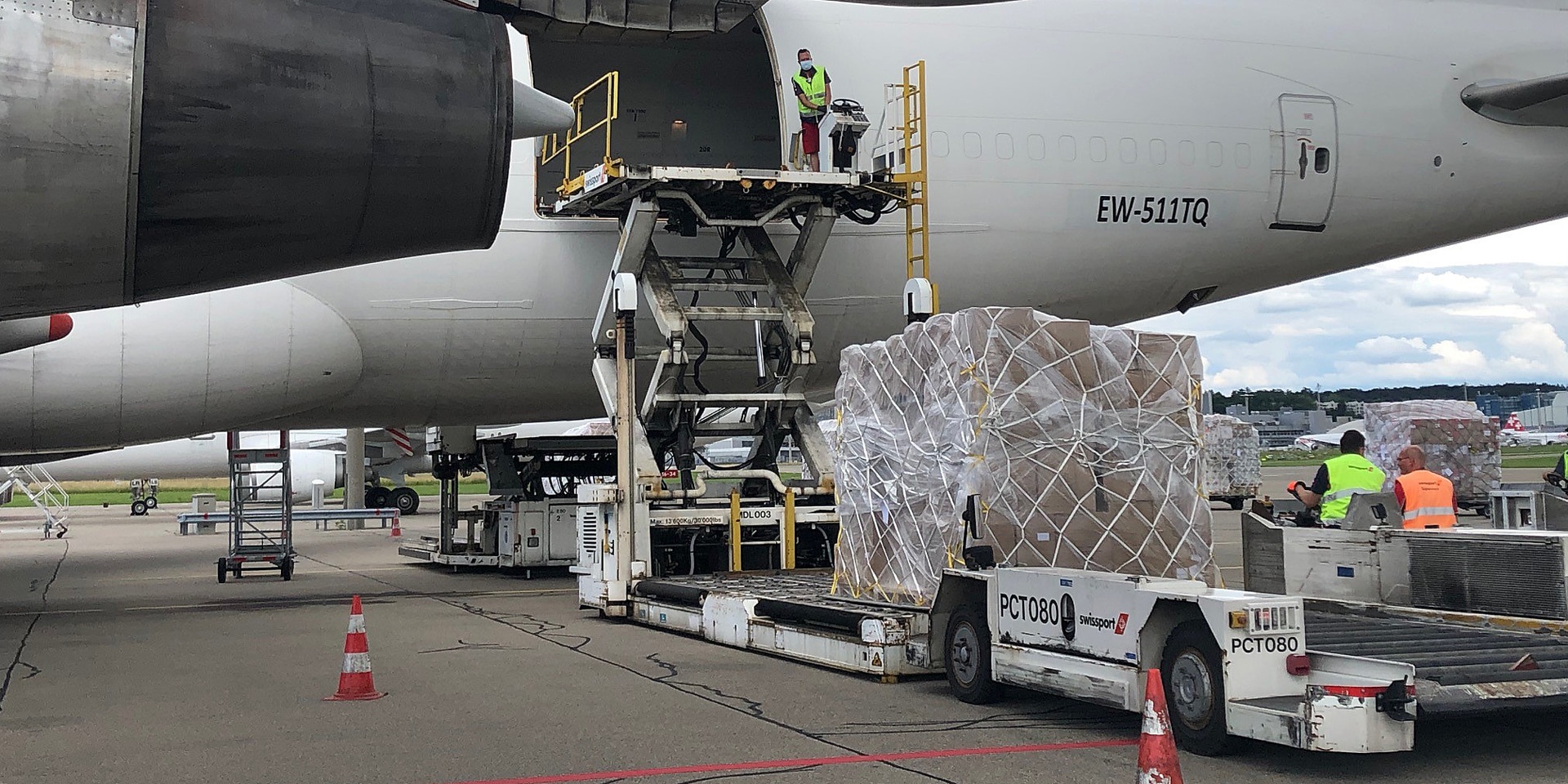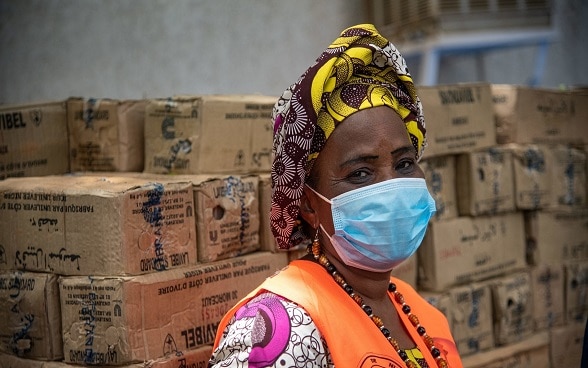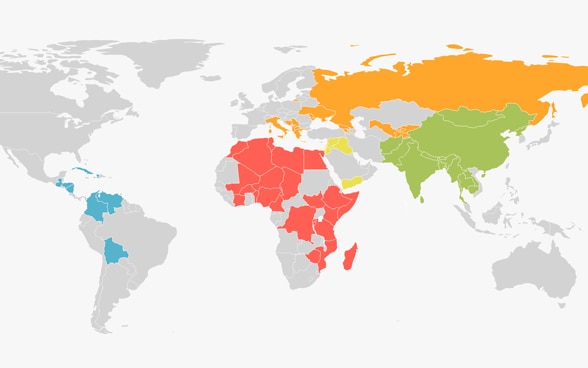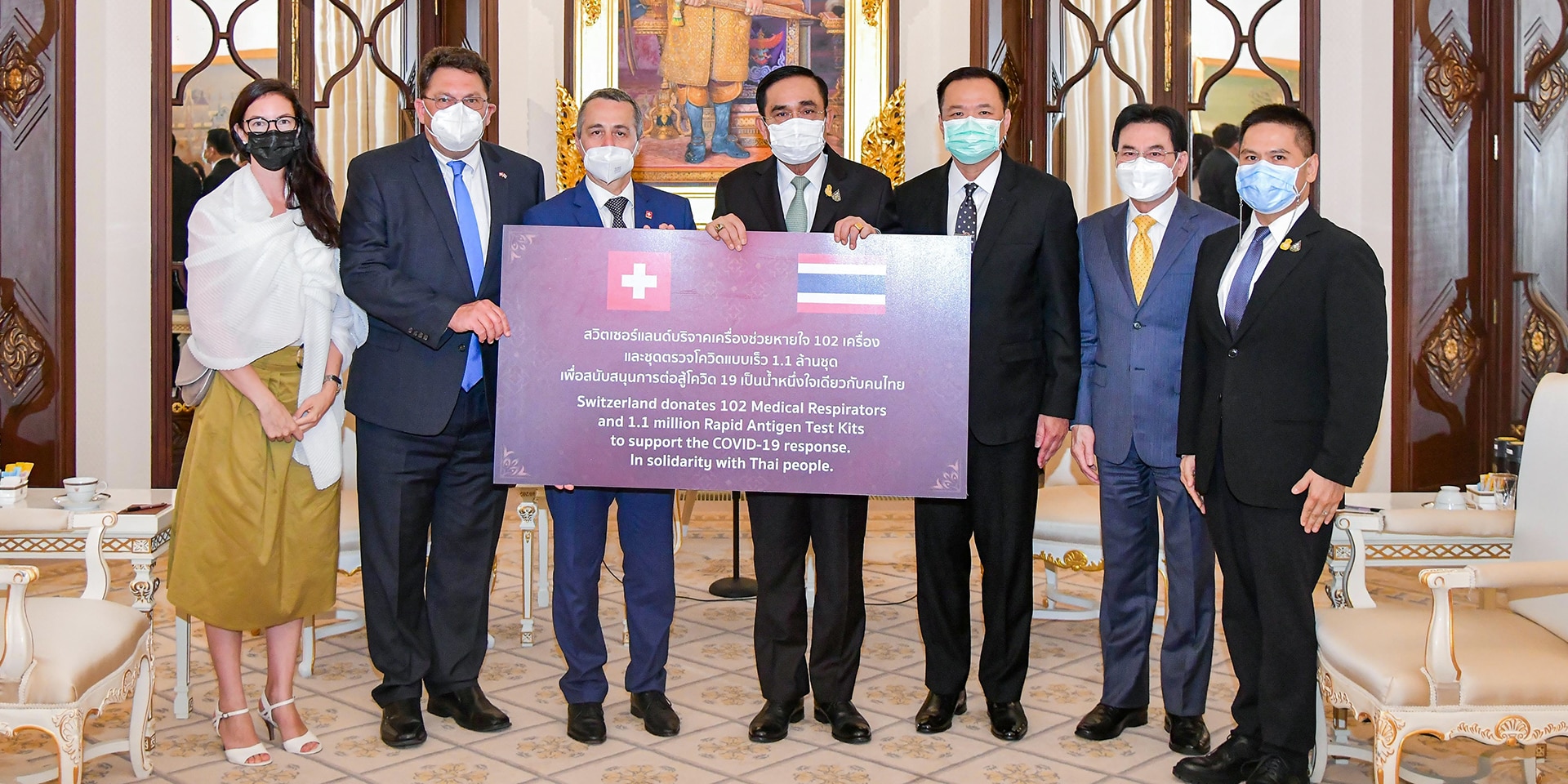94 tonnes of relief supplies for needy people in Venezuela
Venezuela's social, economic and political situation has been deteriorating for years. COVID-19 further exacerbates the already precarious humanitarian situation of the population. In an interview, Manuel Bessler, Head of Humanitarian Aid, explains how Switzerland has organized a transport of relief supplies at the request of UN organizations, NGOs and the ICRC. The relief supplies reached Caracas on 19 June and should bring relief to over a million people.
COVID-19 exacerbates the situation of the Venezuelan population
The economic and political situation in Venezuela is increasingly deteriorating. Inflation, lack of food and medical care, the decline in the supply and quality of social services are leading to poverty among the population and massive emigration. COVID-19 further aggravates the humanitarian situation in the South American state. Around 7 million people in Venezuela need humanitarian aid.
An estimated 9.3 million people have little or no access to food. Clean water is also a scarce commodity and a serious problem in Venezuela - especially in the context of COVID-19. Water and functioning sanitation facilities are essential to contain the spread of the new corona virus and to implement basic hygiene measures. The pandemic not only affects the health of the population, but also worsens deeper social problems.
Switzerland charters jumbo jet for 94 tons of relief supplies
Due to the rapid deterioration of the situation in Venezuela as a result of the coronavirus, the FDFA has delivered relief supplies to Venezuela on behalf of several UN organizations, NGOs and the ICRC. 94 tonnes of humanitarian aid supplies from the requesting organisations reached Caracas by air on 19 June. Most of the cargo consists of medical goods, such as personal COVID protection equipment, medicines, emergency aid material and hygiene articles, but also utensils for drinking water treatment. More than one million people benefit from this campaign. The cost of the flight, which Switzerland has chartered, totalling CHF 1.1 million, will be financed from the existing budget for humanitarian aid. Switzerland plays a crucial role in this transport, as Manuel Bessler, Head of Swiss Humanitarian Aid, explains in an interview.

How does this flight differ from other humanitarian aid operations?
What is special about this action by Swiss Humanitarian Aid is that we have taken on the role of "supplier" of medical supplies that are urgently needed in Venezuela. Nine different international and also Swiss humanitarian actors have asked Swiss Humanitarian Aid whether we could help with the delivery of mainly medical aid goods from Europe to Venezuela. In accordance with our humanitarian mandate, we implemented this logistically demanding operation - naturally in close consultation and detailed coordination with the partner organizations, our embassy in Caracas and the charter company from which we hired the jumbo jet for the transport.
How is the flight actually carried out and what is the logistical effort behind it?
First of all, we had to check whether we could actually carry out the mission: are the requesting humanitarian actors in Venezuela even allowed to work there? What kind of aid supplies were to be transported to Venezuela? Do they meet the needs on the ground, are they approved in Venezuela and are they allowed to be imported? Once these questions were clarified, we had to find a charter company that offers cargo planes with a capacity of at least 100 tons and is willing to fly from Zurich to Venezuela.

The general situation in Venezuela is tense and very politicized. Various countries have also imposed sanctions on Venezuela, which allow humanitarian aid but require additional clarification. Furthermore, we had to obtain all necessary permits for our aid flight from the Venezuelan authorities: this involved overflight and landing rights, import permits and customs clearance.
For us, it is mandatory that the relief flight be accompanied by our own logistics experts from the Swiss Humanitarian Aid Unit (SHA). This means that we have recruited a three-person team from our pool in the SHA, whose members are available for this mission, have the necessary experience and speak Spanish. The COVID-19 crisis was also an additional obstacle in this operation: the aircraft crew and our SHA logisticians accompanying the flight need a certificate that they are COVID-19 negative. This test must not be older than 48 hours upon arrival in Caracas. This humanitarian aid operation is a rather complicated puzzle, where all the pieces not only have to fit together, but also be available at the right time.
Why is Switzerland carrying out this flight?
The needs of the affected population are at the heart of every humanitarian operation. Therefore, in a first step we always assess the needs on the ground. Then we evaluate the added value that Swiss humanitarian aid can provide in addressing those needs. And finally, we keep Swiss interests in mind when carrying out such an action.
The humanitarian needs in Venezuela, which the COVID pandemic has further aggravated, have been identified. This is also confirmed by our Embassy on the ground. More than 7 million people in Venezuela depend on humanitarian aid. The aid in Venezuela will also help reduce the pressure on neighbouring countries, to which more than 5 million people have already fled since 2015.
Such action requires a professional, experienced and internationally recognised and respected humanitarian actor. Switzerland provides this added value. We have a globally recognized humanitarian tradition and experience, we are a respected and credible humanitarian actor and we have no political agenda in such actions. Switzerland's interest in this action is also clear: it lies in the worldwide fight against COVID-19 and, following our humanitarian tradition, in supporting the suffering civilian population.
Switzerland cushions the consequences of COVID-19 worldwide
Since 2017, the SDC's Humanitarian Aid Department has provided CHF 24 million to alleviate suffering in Venezuela. In 2020, it is planning additional expenditure of CHF 12 million to meet humanitarian needs due to COVID-19. The transport of relief goods to Venezuela is part of Switzerland's commitment to mitigate the consequences of COVID-19 worldwide. The pandemic is hitting developing countries particularly hard. The COVID pandemic is not only a health crisis. It also has serious economic, financial and social consequences - especially in these countries. The FDFA has taken swift action. For example, the Swiss Agency for Development and Cooperation (SDC) and the Human Security Division (HSS) have adapted ongoing programmes and made funds available.
Switzerland's good reputation abroad is based in part on its humanitarian tradition. Its foreign policy strategy provides for Switzerland to carry out aid missions in a spirit of impartiality and solidarity during crises, armed conflicts and disasters. The needs of the people are central; their security, dignity and rights should be guaranteed.
Switzerland's international cooperation strategy, which is based on the foreign policy strategy, does not lay down a fixed distribution of resources, with the exception of climate financing. This makes it possible to respond specifically to the current challenges in developing countries.



